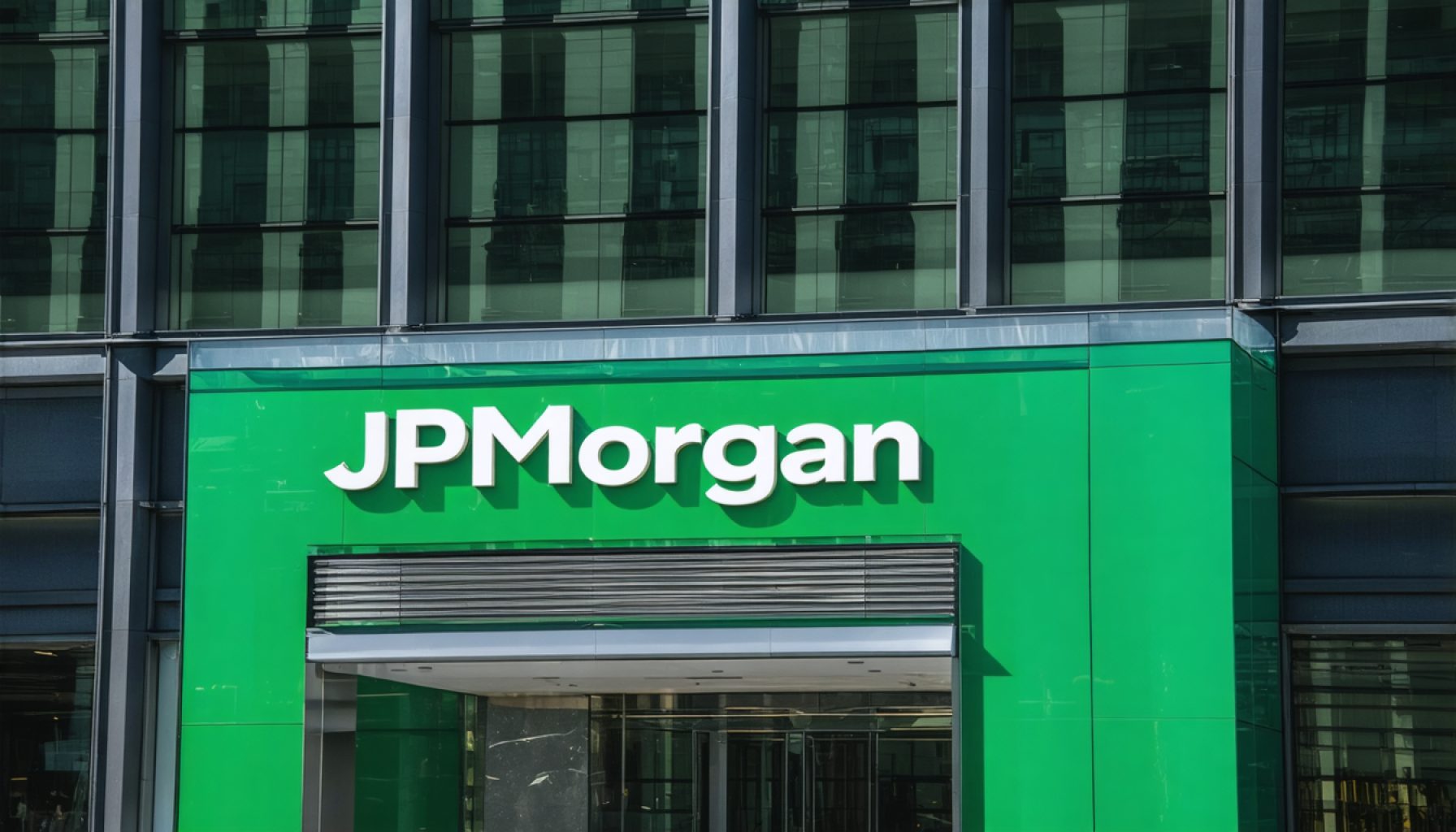- JPMorgan has rated Grab Holdings as “Overweight,” expressing confidence in its future profitability despite market skepticism.
- Grab’s 2025 projections were initially seen as cautious, but past performances suggest a pattern of exceeding expectations.
- The company achieved significant growth by 2024 and has shown a consistent trend of conservative forecasting that often leads to overperformance.
- Grab reported a 5% quarter-on-quarter increase in monthly transacting users, illustrating strong demand for its diverse service offerings.
- Operational efficiencies, increased advertising revenue, and expanded market share are contributing to Grab’s potential profitability leap.
- JPMorgan’s optimistic outlook includes a December 2025 price target of $5.60, highlighting Grab’s growth commitment and resilience.
Amid a chorus of market skepticism, JPMorgan has struck a confident note on Grab Holdings, suggesting the company may surpass its own modest ambitions. The investment behemoth has bestowed an “Overweight” rating upon Grab, projecting a particularly optimistic vision for its future profitability. Following a rough February, where pessimism caught hold after Grab’s 2025 projections caused a stir, this fresh analysis breathes new vigor into the outlook for one of Southeast Asia’s digital giants.
Grab’s stock dipped significantly when investors balked at its fiscal forecasts, yet JPMorgan posits these estimates might be too cautious. Past performance whispers of resilience and potential, with Grab often outstripping its early-year financial targets. By 2024, the company had already outdone its own expectations by a wide margin, suggesting a pattern of conservative outlooks that deceptively underpromise but overdeliver.
Amid the bustling digital landscape, Grab continues to attract a swelling user base with a remarkable quarter-on-quarter growth of 5% in monthly transacting users. This uptick signifies a strong demand for its innovative mix of affordable and premium services. As Grab refines its operational efficiencies, simplifying delivery costs, amplifying advertising revenue, and broadening market share, its profitability stands at the precipice of a potential leap.
Strategists at JPMorgan have fixed their gaze on a December 2025 price target set at $5.60. The narrative unfolds as a testament to Grab’s unwavering commitment to growth, despite the roadblocks on Wall Street. This recalibrated optimism nudges investors toward a fresh perspective on Grab’s capabilities, hinting at an undercurrent of untapped potential ready to surge through the marketplace.
Can Grab Holdings Surpass Market Skepticism? Here’s How It’s Poised for Growth!
How-To Steps & Life Hacks
To fully capitalize on Grab’s potential growth, here are some steps and life hacks for investors and entrepreneurs alike:
1. Stay Updated on Market Trends: Follow Grab’s quarterly earnings reports and stay informed about the Southeast Asian market trends.
2. Diversify Investments: Balance your portfolio by investing not only in tech companies like Grab but also in other emerging market stocks.
3. Leverage Ride-Hailing and Delivery Services: For entrepreneurs, exploring partnerships with or using Grab’s platform can lead to increased visibility and customer reach.
Real-World Use Cases
Grab has become an integral part of daily life in Southeast Asia, offering services such as:
– Transportation: Seamless ride-hailing services for daily commutes in congested cities.
– Food Delivery: Quick and easy access to local and international cuisines.
– Financial Services: Access to micro-lending and payment solutions, broadening financial inclusion.
Market Forecasts & Industry Trends
According to industry analysts, the Southeast Asian digital economy is projected to reach $363 billion by 2025. Grab, as a dominant player in this market, stands to benefit significantly from this growth trend.
Reviews & Comparisons
Compared to its competitors like Gojek, Grab has a more diversified portfolio extending beyond ride-hailing into sectors like finance and advertising. Users frequently rate Grab’s user-friendly app interface and extensive service coverage favorably.
Controversies & Limitations
Despite its growth, Grab faces regulatory hurdles in various countries, particularly concerning ride-hailing laws. Additionally, frequent price hikes can deter some customers.
Features, Specs & Pricing
Grab offers competitive pricing for its ride-hailing and delivery services, often providing discounts and promotions. Its app features include real-time tracking, cashless payment options, and a rewards program.
Security & Sustainability
Grab is heavily invested in tech-driven solutions to ensure user safety, such as in-app emergency alerts and driver background checks. Sustainability-wise, Grab is exploring green initiatives to reduce its carbon footprint through electric vehicle collaborations.
Insights & Predictions
Experts predict that if Grab continues to focus on expanding its ecosystem and increasing operational efficiencies, it could see a valuation increase and serve as a pillar of the Southeast Asian digital economy.
Tutorials & Compatibility
Grab’s app is compatible with both iOS and Android platforms. Users can access step-by-step tutorials within the app to optimize their experience, from setting up payments to tracking rides in real time.
Pros & Cons Overview
Pros:
– Diverse service offerings
– Strong market presence
– Frequent promotional offers
Cons:
– Regulatory challenges
– Pricing complaints from users
Actionable Recommendations
1. Invest Wisely: Given JPMorgan’s positive rating, consider investing in Grab while monitoring industry trends and financial performance.
2. Utilize Grab Services: As a user, maximize Grab’s services by taking advantage of promotions and participating in loyalty programs.
3. Stay Informed: Follow updates from reliable financial news sources to make well-informed investment decisions.
For more information, explore Grab’s official website.
Remember, investing in stocks involves risks, and it’s essential to do comprehensive research before making financial decisions.









